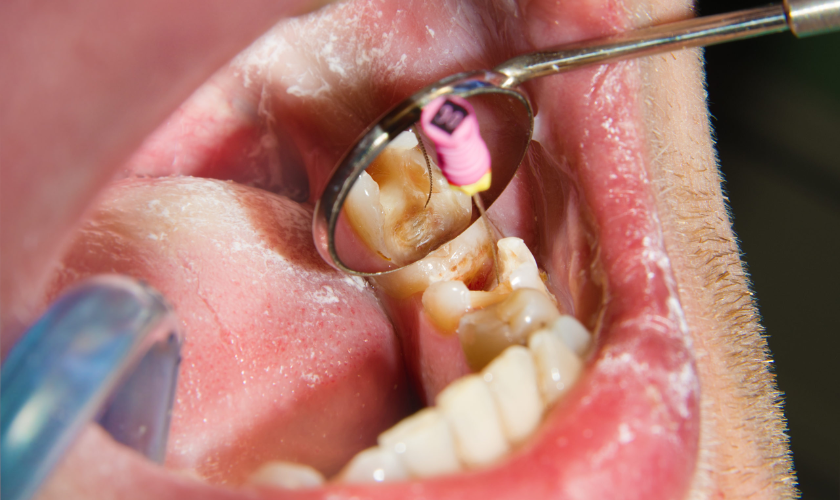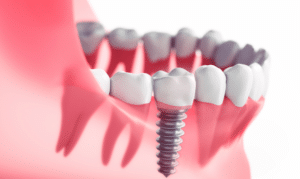Unlocking the mystery behind chronic health issues can be like navigating a labyrinth. You’ve seen doctors, tried countless treatments, and yet, the answers remain elusive. But what if I told you that one possible culprit could lie within your very own mouth? Yes, we’re diving into the controversial world of root canals and their potential impact on our overall health. So hold onto your seats as we explore why this seemingly innocent dental procedure could be causing more harm than you ever imagined. Get ready to unearth the truth about root canals and their connection to chronic health problems!
Why would a root canal cause any trouble?
When it comes to root canals, trouble lurks beneath the surface. The procedure itself is meant to alleviate pain and save a tooth from extraction. However, it’s important to understand that a root canal involves removing the infected pulp inside the tooth and replacing it with a filling material.
So why would this seemingly routine dental treatment cause any trouble? Well, here’s where things get interesting. Despite being treated, some teeth may still harbor bacteria or remnants of infection deep within their roots. These hidden pockets of bacteria can potentially lead to what is known as a “root canal infection” or “failed root canal.”
The presence of these persistent infections can have far-reaching consequences beyond just your oral health. Research suggests that untreated or poorly treated root canal infections may contribute to chronic health issues in other parts of the body. Some experts believe that these lingering infections could serve as sources of chronic inflammation and release harmful toxins into our system.
While not all individuals will experience problems after a root canal, it’s essential to be aware of potential complications that might arise in certain cases. Understanding why these procedures can cause trouble allows us to explore further how they may impact our overall well-being.
What problems your root canal may give rise to?
What problems can your root canal give rise to? Let’s explore some potential issues that may arise after undergoing a root canal procedure.
1. Infection: Although root canals are intended to remove infection from the tooth, there is a possibility of residual bacteria remaining in the treated area. These lingering infections can lead to further complications and health issues.
2. Abscess formation: An abscess may develop if the initial infection was not completely eliminated during the root canal procedure. This pus-filled pocket can cause pain, swelling, and discomfort.
3. Reinfection: If proper oral hygiene practices are not followed post-root canal treatment, reinfection of the tooth is possible. Bacteria from plaque buildup or poor dental care habits can infiltrate the treated area, causing additional problems.
4. Jawbone deterioration: In rare cases, untreated or persistent infections stemming from an inadequate root canal procedure can lead to jawbone deterioration over time.
5. Chronic health issues: Some individuals claim that unresolved infections associated with their root canal have contributed to chronic health problems such as fatigue, headaches, and systemic inflammation; however, scientific evidence supporting this relationship is limited.
It’s important to note that while these problems are potential risks associated with root canals, they do not occur in every case and should be addressed on an individual basis with your dentist or endodontist for appropriate evaluation and treatment options.
How can root canal infections be treated?
Root canal infections can be treated effectively through a combination of professional dental intervention and at-home care. The first step in treating a root canal infection is to visit a dentist who specializes in endodontics, which focuses on the diagnosis and treatment of dental pulp diseases.
During the procedure, the dentist will remove the infected tissue from within the tooth, clean out any bacteria or debris, and then seal it to prevent further infection. This process is commonly known as root canal therapy.
Following the treatment, it’s crucial to maintain good oral hygiene practices to ensure proper healing and reduce the risk of reinfection. This includes brushing your teeth twice daily with fluoride toothpaste, flossing regularly, and using an antibacterial mouthwash recommended by your dentist.
In some cases where there are persistent or recurrent infections, additional treatments may be necessary. These can include retreatment of the root canal or even extraction of the affected tooth if all other options have been exhausted.
It’s important to note that early detection and prompt treatment are key factors in successful outcomes for root canal infections. If you experience any symptoms such as severe toothache, sensitivity to hot or cold foods/drinks, swollen gums, or persistent bad breath, seek immediate dental attention.
Remember that each case is unique; therefore consulting with a qualified dentist is essential for determining the most appropriate course of action based on your individual needs. Properly addressing root canal infections can help alleviate pain and discomfort while promoting overall oral health.
In the end, it’s important to remember that each person’s experience with a root canal may differ. While some individuals may never encounter any issues after undergoing this dental procedure, others might find themselves dealing with chronic health problems. It is crucial to stay informed and aware of any changes in your body or overall well-being.
If you suspect that your root canal has caused or contributed to ongoing health concerns, it is vital to consult with healthcare professionals who can provide proper evaluation and guidance. They will be able to assess your specific situation and recommend appropriate treatment options based on their expertise.
Remember, there are various factors that could impact the outcome of a root canal procedure. These include the skill of the dentist performing the treatment, individual oral hygiene habits, pre-existing conditions, and genetic predispositions. Therefore, it is essential not to generalize or jump to conclusions about all root canals causing chronic health issues.
Prioritizing regular dental check-ups and maintaining good oral hygiene practices can go a long way in preventing tooth decay and reducing the need for extensive dental procedures like root canals. Your dentist will be able to guide you through necessary treatments while keeping your overall health in mind.
Stay proactive when it comes to taking care of your teeth and gums because prevention is always better than cure!
FAQ
Q: Can root canals cause chronic health issues?
A: While there is ongoing debate about the connection between root canals and chronic health problems, it is important to note that every individual’s situation may vary. Some people experience no issues after undergoing a root canal procedure, while others may encounter complications. It is always recommended to consult with your dentist or endodontist if you have concerns about your specific case.
Q: How are root canal infections treated?
A: Root canal infections are typically treated through a procedure called endodontic therapy or simply a root canal treatment. During this process, the infected pulp inside the tooth is removed, and the area is thoroughly cleaned and disinfected. Afterward, the tooth is sealed with a dental filling or crown to prevent further infection.
Q: Are there any alternatives to getting a root canal?
A: In some cases where a root canal may not be feasible or appropriate, alternative treatments such as extraction of the affected tooth followed by implant placement or bridge work might be considered. However, it’s crucial to discuss these options thoroughly with your dentist who will help determine which course of action suits your situation best.
Q: How can I prevent needing a root canal in the first place?
A: Maintaining good oral hygiene practices such as regular brushing and flossing can significantly reduce your risk of developing dental decay that could lead to an infection requiring a root canal. Additionally, scheduling routine dental check-ups allows for early detection and prompt treatment of any potential issues before they escalate.
Remember that everyone’s dental needs differ; therefore seeking professional advice from a qualified dentist remains essential when making decisions regarding your oral health.
So while there may be varying opinions on whether or not root canals can cause chronic health issues, it’s crucial not to jump to conclusions without proper evaluation from experts in dentistry field





